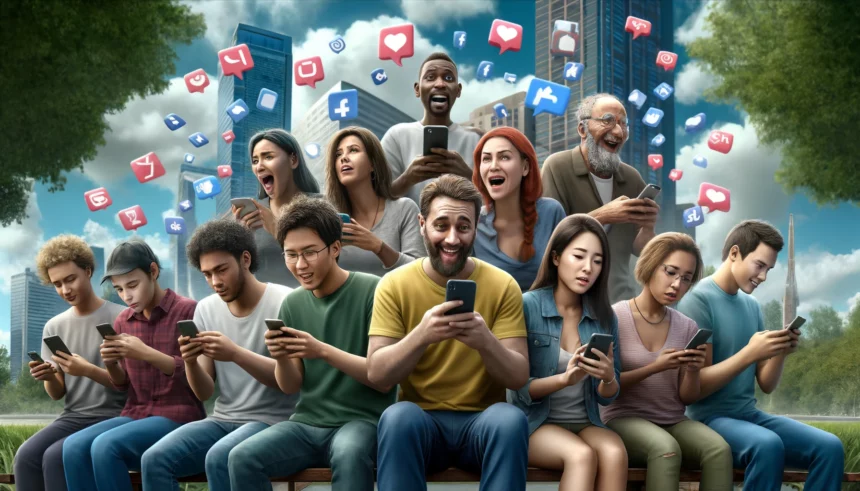The Impact of Social Media on Society
In the last decade, social media platforms like Facebook, Instagram, and Twitter have significantly shaped our society. Initially celebrated for connecting people globally, these platforms are now scrutinized for their deeper psychological impacts. Tristan Harris, a prominent tech ethicist, argues that the very structure of these platforms, driven by AI and profit motives, leads to widespread societal harm.
Exploring the Dark Side of Social Media
Social media started as a beacon of global connection, with platforms promoting open communication and community building. However, the reality has shifted dramatically. These platforms have morphed into arenas that amplify negative behaviors and emotions due to their foundational incentive structures, which prioritize user engagement over well-being.
The increase in polarization, misinformation, and mental health issues among users can be traced back to the algorithms that curate and present content. These algorithms are designed to maximize user engagement, often by promoting content that provokes emotional reactions rather than informed discussions. The outcome is a more divided society, where misinformation spreads faster than factual content, and political discourse becomes outrage-driven.
The Role of AI in Exacerbating Social Media Issues
According to Harris, the algorithms underlying these social media platforms create an “invisible engine” that drives the psychological experience of billions of people. The focus on keeping users engaged leads to shortened attention spans, increased loneliness, and heightened anxiety. This algorithm-driven environment fosters an ecosystem where sensational content thrives, pushing more reasoned, less sensational voices to the sidelines.
Calling for a Paradigm Shift in AI Incentives
Harris suggests that the only viable solution is a radical change in the incentives that guide AI developments within these companies. By redesigning the algorithms to prioritize human well-being over mere engagement, there could be a significant reduction in the negative impacts of social media.
The suggestion is to implement regulations that require transparency in how algorithms function and promote content. Moreover, these platforms could be redesigned to encourage more meaningful interactions that contribute positively to user well-being and societal cohesion.
The Path Forward
The discussion around AI and its role in social media is critical as we navigate the increasing influence of technology in our lives. Harris’s call for change is echoed by various stakeholders, including policymakers, technologists, and civil society, who recognize the urgent need for platforms that prioritize human-centric values over profit.
















